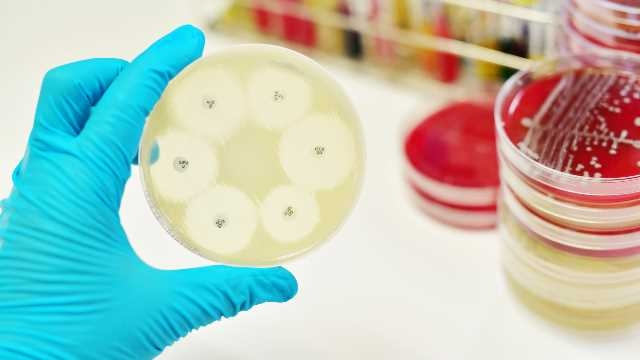Why antimicrobial resistance is a dangerous killer
 Antimicrobial resistance
Antimicrobial resistance
The World Health Organization (WHO) estimates that about 700,000 people die globally every year.
While about 10 million people will die every second by the year 2050 if nothing is done about the situation, according to experts.
Lying on a hospital bed at Densuso in the Suhum- Kraboa-Coalter District in the Eastern Region of Ghana, seven-year-old Abdul Malik is fighting for his life.
In the last two days, doctors administering antibiotic on him says his microbe is resisting all the medications due to the excessive intake of antibiotics.
However, his parents say the primary two pupil has never been on any antibiotics and does not eat from outside, except from drinking from the Densu River, which serves the over 500 residents in the community.
“My son hardly gets sick and has not been to any hospital so I am confused about the medical test that says that his system is resistant to antibiotics,” Hajia Memuna Malik, the mother of Malik said.
Densuso is a farming community where residents rely heavily on the Densu River for domestics purposes. They also use it to irrigate their farms.
A source of water for the community
The River is, however, surrounded by weeds and due to the absence of toilet facilities in homes, the residents defecate at the banks of the river while domestic animals also share the same source of water.
However, to fight pests, farmers use agrochemicals on the farms which are washed into the river whenever it rains. They also wash their knapsack sprayers in the same river.
Interestingly, data from the Densuso CHPS Compound indicate that Abdul Malik is not the only one suffering from Cholera, as Cholera, tuberculosis and bilharzia are the common sicknesses in the community.
Dr Kofi Afakye, a technical officer with the Food and Agriculture Organisation, explains that excessive use of pesticides that leach into water bodies pollute and destroys aquatic life.
The pollution also causes antimicrobial resistance. Again, he said humans get resistance gems from the environment and animals that have developed resistance to antibiotics just as the seven-year-old's system has developed resistance to such drugs.
A Medical Microbiologist at the University of Ghana, Dr Japhet Opintan, explained that irrational use of antimicrobial resistance contributes to drug resistance among humans which can lead to death.
As of the time of filing this report distress from the hospital, which had Malik’s mother’s wailing voice at the background said: “he is dead.”
However, Dr Opintan said his death could have been averted if the chemical use could have been controlled and the community had observed good hygienic practices.
Antimicrobials are drugs used for management of infections but it misuse has rather become toxic to humans, animals and the environment.
Source: MASAHUDU ANKIILU
Trending News

KGL records major milestones in 2025, defies critics with strong national and global impact
17:16
Okudzeto-Ablakwa inaugurates smart classrooms to boost STEM education in North Tongu
11:38
CDM accuses GoldBod CEO of contradictions over Gold-for-Reserves losses
16:40
Activist Felicity Nelson brings Christmas comfort to Accra Police cells
08:32
CDM rejects claims that BoG losses were due to Gold Purchase Programme
16:35
First batch of large-scale mining licences to face possible revocation revealed
09:08
CDM calls on President Mahama to act over ‘alarming’ GoldBod trading losses
16:30
A/R: Kumawu MP celebrates Christmas with drivers and Okada riders
07:57
Alhaji Agongo builds lifeline facility for Ghana Police Hospital’s ‘unknown patients’
09:55
IGP Special Operations Team arrests suspect in Kpalsi over suspected Indian Hemp
07:48




